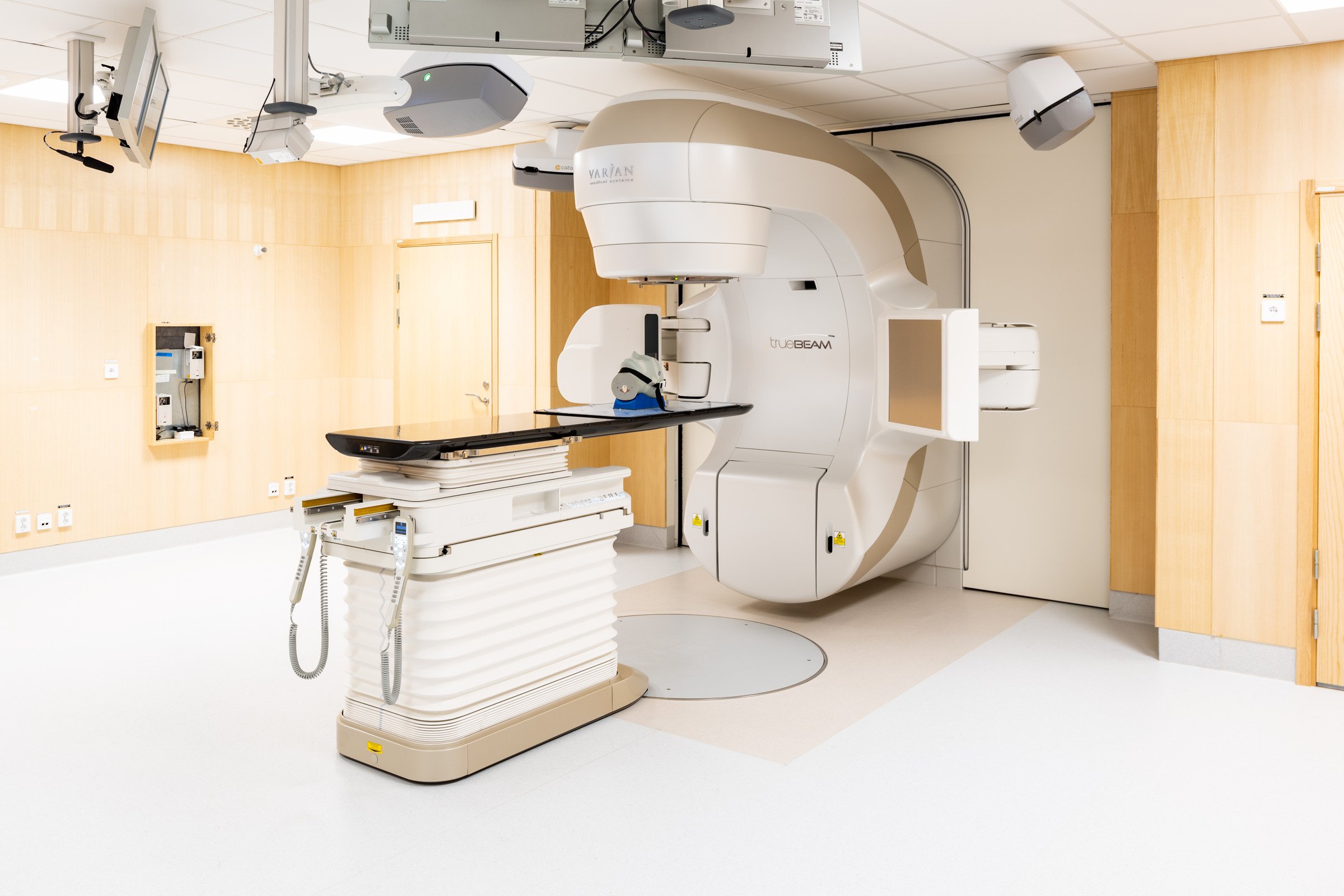Head and Neck Cancer
At Karolinska University Hospital, team collaboration around the patient is crucial during the examination, treatment decisions, and treatment. Specialists such as head and neck-, plastic- and dental surgeons work together with oncologists in order to offer each patient optimal treatment.
Head and neck cancer includes cancer in the nose, sinuses, mouth, throat, salivary glands, and larynx. Men are more likely to develop head and neck cancer, and smoking, alcohol, and infection by HPV and EBV are known risk factors.
Oncology
Our goal is to offer world-class cancer care based on every patient's individual needs. Oncology
Bringing together cutting-edge research and world-leading expertise
